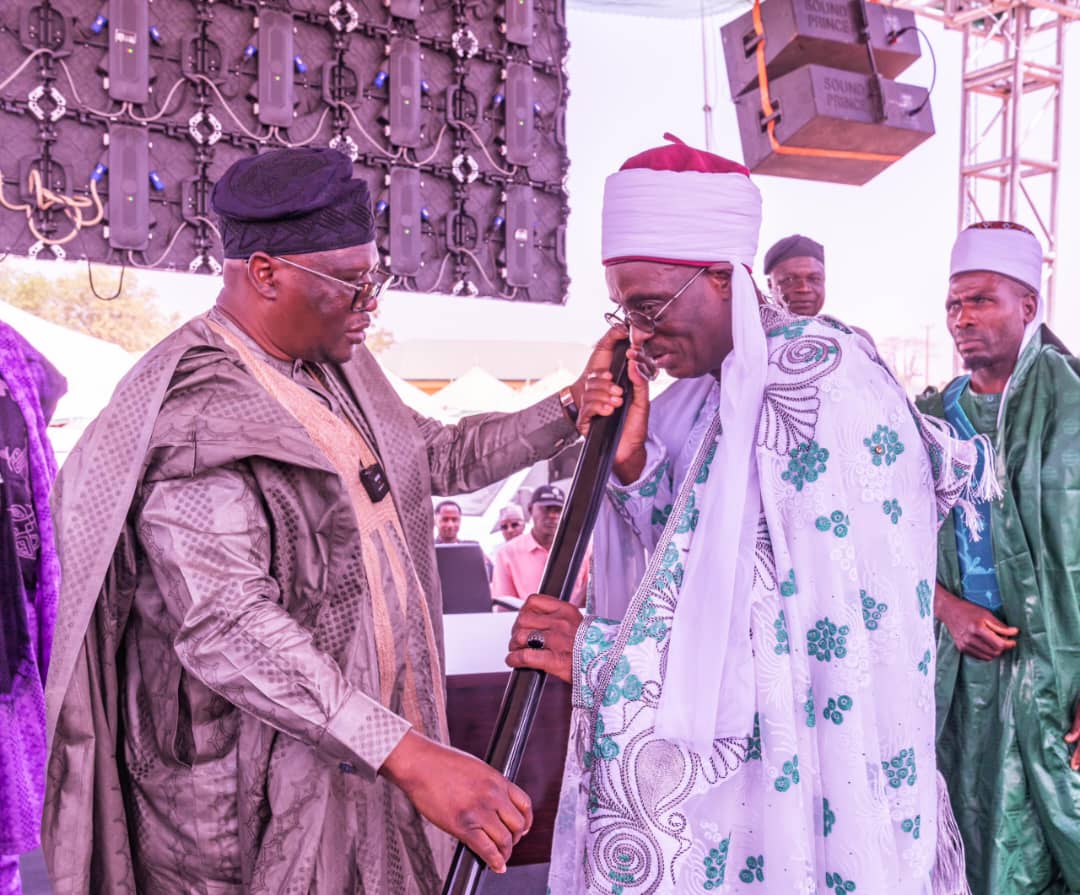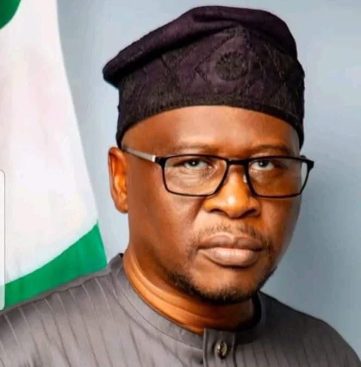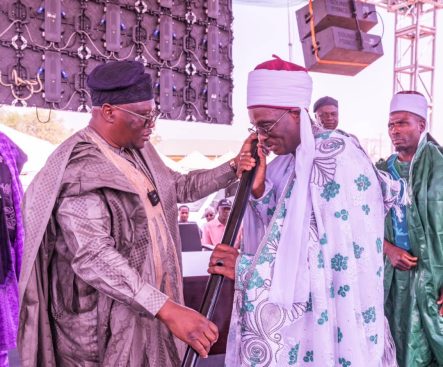ANALYSIS OF SPEECHES BY HIS EXCELLENCY ADAMAWA STATE GOVERNOR WHILE PRESENTING STAFF OF OFFICE TO NEW MONARCHS
The three speeches delivered by His Excellency, Rt. Hon. Ahmadu Umaru Fintiri, CON, the Executive Governor of Adamawa State, share several common themes and objectives while also addressing specific contexts and audiences. Below is an analysis of the key elements, similarities, and differences between the three speeches: The speeches emphasise the importance of traditional institutions […]

img 20250209 wa0017
The three speeches delivered by His Excellency, Rt. Hon. Ahmadu Umaru Fintiri, CON, the Executive Governor of Adamawa State, share several common themes and objectives while also addressing specific contexts and audiences. Below is an analysis of the key elements, similarities, and differences between the three speeches:
The speeches emphasise the importance of traditional institutions (chiefdoms and emirates) in fostering unity, peace, and development in Adamawa State. The creation of new chiefdoms and emirates is portrayed as a response to the demands of the people and a means of decentralising governance. The governor highlights the legitimacy of the newly appointed traditional rulers, noting their widespread acceptance by the people. This is seen as a critical factor for ensuring peaceful and effective leadership. The three speeches stress the need for unity among diverse ethnic and cultural groups within the state. The Governor calls for tolerance, solidarity, and the harnessing of diversity as an asset rather than a liability.
The speeches underscore the potential for economic development in the newly created chiefdoms and emirates, citing natural resources, agricultural potential, and human capital. The governor encourages the traditional rulers to mobilise these resources for the benefit of their people. The governor emphasises the role of traditional rulers in maintaining peace, resolving conflicts (such as herder-farmer clashes), and supporting local intelligence gathering to enhance security. The speeches call for the mobilisation of youth away from vices like drug abuse and crime and toward education, entrepreneurship, and agriculture.
The Governor references the “Adamawa State Chiefs (Appointment and Deposition) Law 2024” as the legal foundation for the creation of these traditional institutions. This law is presented as a reform aimed at ensuring dignity, legitimacy, and rancour-free succession processes.
- Gov Fintiri Participates in 5th Lake Chad Governors’ Forum
- Fintiri’s Intervention in Livestock Sub-Sector
Differences in Context and Emphasis
Audience and Setting
The first speech is delivered at the Atiku Abubakar Stadium in Fufore during the presentation of the Staff of Office to the Emir of Fufore, His Royal Highness Alh Muhammad Sani Ahmadu Ribadu. It emphasises the creation of the Fufore Emirate and its significance for the people of Fufore. The second speech is delivered in Dumne during the presentation of the Staff of Office to the Gubo Yungur, His Royal Majesty Gubo Johnson Diyo Matalo. It focuses on the Yungur people and their historical struggle for self-rule. While the third speech was delivered in Gombi, during the presentation of the staff of office to Kumu Gombi, his royal majesty, Aggrey Ali, in Gombi on 8th February, 2025
In the first speech, the focus is more on the broader reforms to the traditional institution and the creation of new Emirates and chiefdoms as part of a deliberate policy to decentralise governance and bring justice closer to the people. In the second speech, the Governor highlights the historical injustice faced by the Yungur people, who were previously subjected to the traditional rule of others. The creation of the Yungur Chiefdom is framed as a rectification of this historical anomaly. In the third speech, the governor said that the ethnic groups that make up Gombi Chiefdom have rich history, cultures, and traditions in their own individual rights.
The first speech emphasises the role of the Emir in consolidating the institution, resolving disputes, and providing governance in previously ungoverned spaces within the Fufore Emirate. The second speech addresses the need to minimise herder-farmer conflicts in the Yungur Chiefdom and calls for harmonious coexistence. While the third speech calls for advancements of justice and prosperity.
While the first speech is more policy-orientated, focusing on the legal and administrative reforms that underpin the creation of the Fufore Emirate, the second and the third speeches have a more historical and emotional tone, reflecting on the governor’s personal connection to the Gombi and Yungur people and their struggle for self-rule.
The speeches reflect the Governor’s commitment to decentralising governance and empowering local communities through traditional institutions. This is seen as a way to address historical grievances, promote development, and enhance security. The governor positions traditional rulers as key agents of change, responsible for fostering unity, resolving conflicts, and driving development within their domains. The creation of chiefdoms and emirates is portrayed as a response to the yearnings of the people, aligning governance with their cultural and historical identities.
The speeches end with a call to action, urging the people to support their new traditional rulers and work together to build thriving communities.
Conclusion
The three speeches reflect a coherent vision for Adamawa State, centred on the empowerment of traditional institutions, the promotion of unity and development, and the resolution of historical grievances. While the first speech emphasises the broader policy framework and administrative reforms behind the creation of the Fufore Emirate, the second and third speeches are more focused on the historical and emotional significance of the Yungur and Gombi chiefdoms. Together, they highlight the governor’s commitment to inclusive governance, cultural preservation, and sustainable development in Adamawa State.


